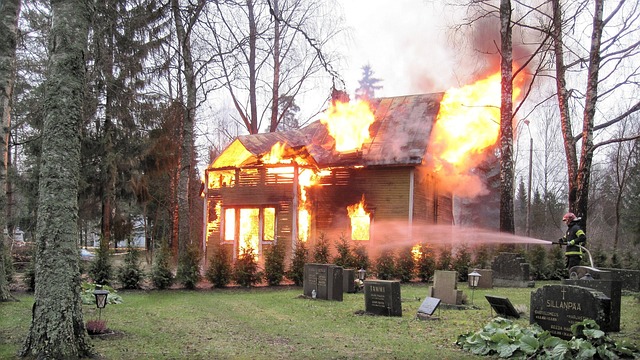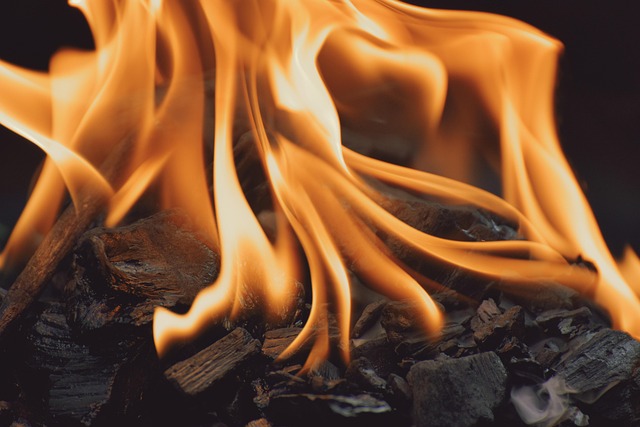Fire damage restoration in California is a critical process for homeowners aiming to sell their affected properties. It involves meticulous assessment, structural repairs, cleaning, and adherence to building codes overseen by the Department of Building Standards and Safety. Homeowners should document damages, communicate with insurers, and prioritize repairs based on urgency and aesthetic appeal to enhance curb appeal and attract buyers when selling a fire-damaged house in California ("sell my fire damaged house California"). Prompt action and professional services are essential to mitigate financial losses and health risks associated with fire damage.
Fire damage can be devastating, but prompt restoration is key to mitigating losses. This comprehensive guide explores the intricate processes of fire damage restoration, from understanding the science behind it to legal aspects like insurance claims in California. We delve into the health impacts and provide valuable tips for those considering selling their fire-damaged homes in the Golden State. Learn how to navigate this challenging situation effectively.
- Understanding Fire Damage Restoration Processes
- The Impact of Fire on Property and Health
- Legal Considerations and Insurance Claims in California
- Tips for Selling Your Fire-Damaged House in California
Understanding Fire Damage Restoration Processes

Fire damage restoration is a specialized process designed to return your home in California to its pre-fire condition, or even beyond. When you sell my fire damaged house California, understanding the processes involved can help ease your mind and ensure a smoother transition. The first step is assessment, where professionals inspect the extent of the damage, identifying affected areas and prioritizing repairs. This crucial phase determines the overall restoration plan.
Once assessed, the restoration process begins. It includes structural repairs, cleaning, and decontaminating affected areas. Specialized equipment and techniques are employed to remove charred materials, soot, and smoke odor, restoring safety and comfort. In many cases, rebuilding and remodeling efforts may be required to meet modern codes and enhance the home’s value. Throughout the process, restoration experts communicate openly, keeping you informed about progress, timelines, and costs associated with selling your fire-damaged property in California.
The Impact of Fire on Property and Health

Fire damage can have severe consequences for both properties and health, particularly in a state like California where wildfires are a frequent concern. When a fire strikes, it leaves behind charred remains and smoke residue that can cause extensive structural damage to buildings. The heat generated during a blaze can weaken or destroy essential components of a house, from wiring to plumbing, making it unsafe for occupation.
Beyond the physical devastation, fires also pose significant health risks. Smoke inhalation can lead to severe respiratory issues, while the toxic gases released by burning materials may cause long-term health problems. For residents considering selling their fire-damaged homes in California, it’s crucial to understand that potential buyers will likely require extensive restoration work before they can move in. Prompt action and professional restoration services are essential to mitigate both the financial losses and health risks associated with fire damage.
Legal Considerations and Insurance Claims in California

In California, fire damage restoration involves more than just repairing physical structures; it’s a complex process with significant legal considerations. Homeowners selling their fire-damaged properties in California must adhere to strict building and safety codes. Restoration companies must ensure that all repairs meet these standards, as failure to do so can lead to legal issues and financial losses. The state’s Department of Building Standards and Safety plays a crucial role in overseeing these regulations, ensuring that structures are safe for occupancy after fire damage.
When it comes to insurance claims, California residents should be aware of their policy terms and conditions regarding fire damage. Homeowners should document all damages thoroughly, using photographs and detailed reports from professionals. This process is essential when filing an insurance claim or selling a fire-damaged house in California. Understanding one’s coverage limits and deductibles is vital to navigating the claims process effectively. Prompt communication with insurance providers is recommended, as timely restoration can prevent further losses and streamline the claim settlement process.
Tips for Selling Your Fire-Damaged House in California

If you’re considering selling your fire-damaged home in California, it’s crucial to understand that prospective buyers will likely want to see evidence of thorough restoration and damage assessment before committing. The first step is to engage professional fire damage restoration services who can assess the extent of the harm and provide a detailed report. This report is essential for both understanding the repair costs and attracting potential buyers.
Once the damage is assessed, prioritize repairs based on urgency and aesthetic appeal. Buyers are often drawn to properties that appear well-maintained and free from signs of extensive damage. Focus on restoring key areas like the roof, windows, and exterior walls first. Addressing these aspects can significantly enhance the home’s curb appeal and make it more marketable when you decide to list your property as ‘sell my fire damaged house California’.
Fire damage restoration is a complex process that requires expertise and specialized techniques. Understanding the impact of fires on both property and health, as well as navigating legal considerations and insurance claims in California, is crucial for anyone looking to sell their fire-damaged house. By delving into these aspects, homeowners can ensure they receive fair compensation and make informed decisions when it comes to selling their properties. Remember that, in the context of selling a fire-damaged house in California, knowledge is power.






